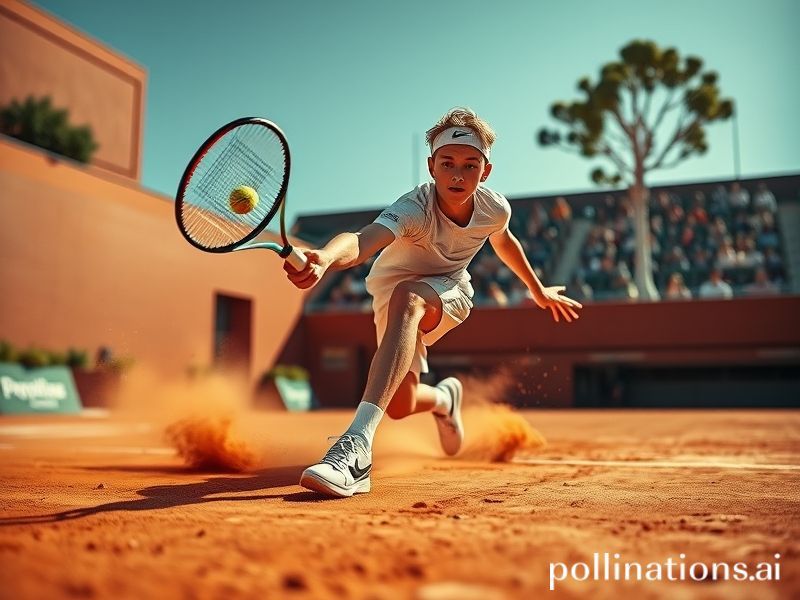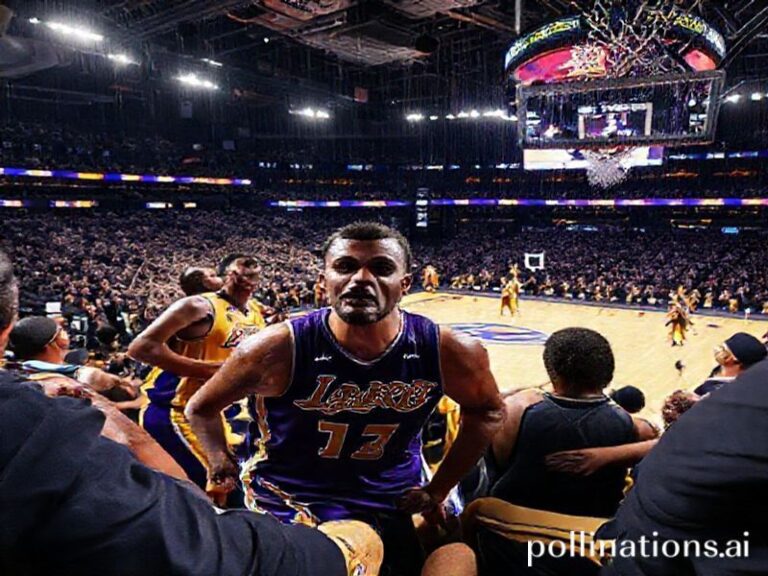Menšík Effect: How One Czech Teen Is Redrawing Global Tennis (and Power) Maps
Mensik: The Czech Kid Who Just Made Wimbledon a Global Gladiator Ring Again
By our man in the cheap seats, nursing a warm beer and existential dread
PARIS—When 17-year-old Jakub “Menšík” (pronounced “men-sheek,” rhymes with “oblique”) crashed the Madrid Open party last month, beating two Top-20 players before politely asking the ball kids for a juice box, the earth didn’t exactly shake. Instead, it gave a knowing shrug. Another teenage Slavic disruptor, fresh off the assembly line of post-Soviet tennis factories, ho-hum. But when the same kid—now 6’4’’ and counting—showed up at Roland-Garros qualifying and started flattening forehands like invoices in a Greek tax office, the international press corps collectively dropped its ham sandwich. Suddenly “mensik” wasn’t just a Czech surname; it was a geopolitical event masquerading as a sport.
Let’s zoom out. While the rest of us were doom-scrolling about Ukrainian grain corridors and the inexorable rise of AI-generated pop stars, the global tennis oligarchy has been quietly panicking. The Big Three have entered the “ambulatory museum” phase of their careers, and the sport’s broadcast rights—those shiny jewels that keep the lights on from Singapore to São Paulo—are suddenly hostage to the attention span of Generation Z. Enter Menšík, stage left, wearing a backwards cap and the dead-eyed confidence of someone who’s seen “Succession” and decided monarchy is inefficient.
The implications ricochet far beyond the baseline. In Beijing, state broadcasters are already splicing his highlights into soft-power montages, because nothing says “harmonious society” quite like a lanky European teenager who can weaponize topspin. In Qatar, emirs are recalculating which academy to bankroll next; if the kid can be lured to Doha for winter training, the soft-power ROI dwarfs another yacht. Meanwhile, in Cincinnati, American agents are Googling “Czech birth certificates” with the desperation of a hedge-fund manager hunting tax shelters.
Economically, the kid is a one-man supply-chain shock. Czech stringers report catgut futures spiking 11 percent in a fortnight—catgut, for the uninitiated, is still the go-to despite sounding like something from a Dickensian butcher. Racquet companies have dispatched scouts to Brno with duffel bags full of unreleased prototypes and NDAs the length of Tolstoy. And somewhere in Lausanne, the IOC is penciling him into the 2028 LA Games marketing deck under “potential face of Olympism, pending drug test.”
But the real story is psychological. After two decades of watching Federer glide like a Swiss watch commercial and Nadal grunt like a siege engine, fans had convinced themselves that greatness required a narrative arc—tragic childhood, obsessive uncle, gluten-free epiphany. Menšík’s origin tale is almost insultingly straightforward: supportive parents, indoor courts since age six, no discernible childhood trauma beyond the price of Czech beer. It’s as if the tennis gods, bored with our Freudian expectations, decided to troll us with sheer competence.
Naturally, the cynics have assembled like vultures at a buffet. European tabloids have already run the inevitable doping innuendo—because nothing ruins a feel-good story like a urine sample. American podcasts are debating whether his game is “too robotic,” the ultimate backhanded compliment from a nation that once worshipped Pete Sampras, the human metronome. And in the darker corners of Reddit, conspiracy theorists insist he’s a deepfake stitched together by the same cabal that faked the moon landing and avocado toast.
Yet for all the noise, the kid keeps winning. And every time he does, a small but measurable shift occurs in the global pecking order. A Slovakian kid in Bratislava switches from PlayStation to practice. A Japanese sponsor rewrites its quarterly forecast. An aging French coach postpones retirement by three years, hoping to be the next “guru” du jour. Call it the Menšík Multiplier: the butterfly effect with a two-handed backhand.
So when Wimbledon unfurls its phony grass in a fortnight and some BBC presenter coos about strawberries, remember this: the most consequential match may not be the final, but a second-round skirmish featuring a teenager who still needs permission to rent a car. Because in 2024, power doesn’t wear a crown; it wears a sweat-drenched Nike bandana and speaks with a Central European lilt. And if that doesn’t terrify the gatekeepers of the old order, they haven’t been paying attention—which, come to think of it, is exactly how empires fall.







